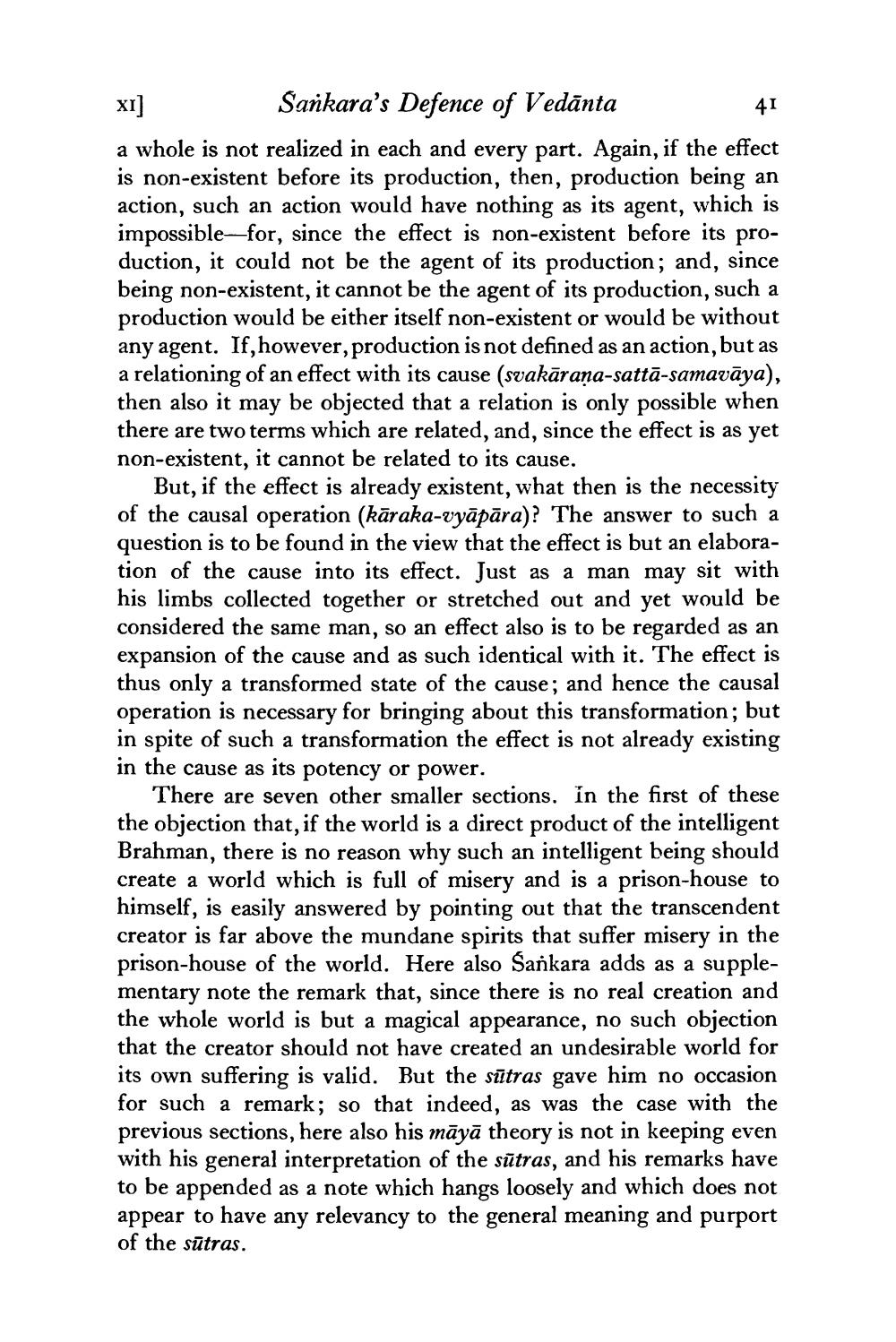________________
41
XI]
Sankara's Defence of Vedānta a whole is not realized in each and every part. Again, if the effect is non-existent before its production, then, production being an action, such an action would have nothing as its agent, which is impossible-for, since the effect is non-existent before its production, it could not be the agent of its production; and, since being non-existent, it cannot be the agent of its production, such a production would be either itself non-existent or would be without any agent. If, however, production is not defined as an action, but as a relationing of an effect with its cause (svakārana-sattā-samavāya), then also it may be objected that a relation is only possible when there are two terms which are related, and, since the effect is as yet non-existent, it cannot be related to its cause.
But, if the effect is already existent, what then is the necessity of the causal operation (kāraka-vyāpāra)? The answer to such a question is to be found in the view that the effect is but an elaboration of the cause into its effect. Just as a man may sit with his limbs collected together or stretched out and yet would be considered the same man, so an effect also is to be regarded as an expansion of the cause and as such identical with it. The effect is thus only a transformed state of the cause; and hence the causal operation is necessary for bringing about this transformation; but in spite of such a transformation the effect is not already existing in the cause as its potency or power.
There are seven other smaller sections. In the first of these the objection that, if the world is a direct product of the intelligent Brahman, there is no reason why such an intelligent being should create a world which is full of misery and is a prison-house to himself, is easily answered by pointing out that the transcendent creator is far above the mundane spirits that suffer misery in the prison-house of the world. Here also Sankara adds as a supplementary note the remark that, since there is no real creation and the whole world is but a magical appearance, no such objection that the creator should not have created an undesirable world for its own suffering is valid. But the sīītras gave him no occasion for such a remark; so that indeed, as was the case with the previous sections, here also his māyā theory is not in keeping even with his general interpretation of the sūtras, and his remarks have to be appended as a note which hangs loosely and which does not appear to have any relevancy to the general meaning and purport of the sūtras.




